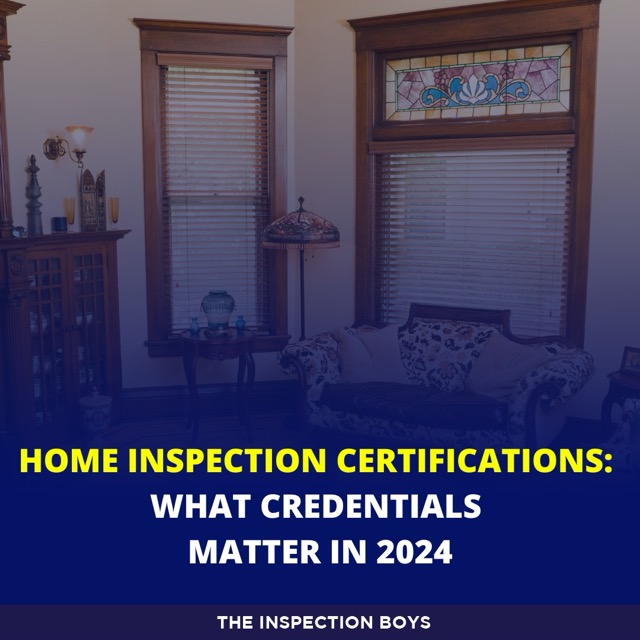In the ever-evolving landscape of real estate, ensuring that a home is safe, secure, and structurally sound has never been more important. This makes home inspection services a crucial part of the buying and selling process. For buyers, a home inspection can uncover potential issues, while sellers can address problems before listing their property. To perform these inspections, home inspectors must have the right certifications and credentials, signifying their competence and commitment to high standards. Let’s explore the key certifications and what they mean for the quality and reliability of home inspection services in 2024.
The Importance of Certification
Home inspection certifications are essential as they provide assurance that an inspector has undergone rigorous training and adheres to industry standards. Certified home inspectors are equipped with the knowledge and skills necessary to identify issues that may not be apparent to the untrained eye. Their expertise ensures a thorough evaluation of a property’s condition, offering peace of mind to both buyers and sellers.
Key Certifications for Home Inspectors
American Society of Home Inspectors (ASHI) Certification
ASHI is one of the most respected organizations in the home inspection industry. An ASHI certification indicates that an inspector has passed comprehensive exams and completed a significant number of inspections. This certification requires continuing education, ensuring that inspectors stay updated with the latest practices and standards.
International Association of Certified Home Inspectors (InterNACHI)
InterNACHI is a globally recognized organization providing extensive training and resources for home inspectors. Certification from InterNACHI involves passing rigorous exams and participating in ongoing education. Inspectors are also required to follow a strict code of ethics and standards of practice, which enhances their credibility and reliability.
National Institute of Building Inspectors (NIBI)
NIBI certification is another mark of excellence in the home inspection field. It involves a thorough training program that covers various aspects of home inspection, including structural components, electrical systems, plumbing, and HVAC. Inspectors with NIBI certification are well-prepared to provide detailed and accurate reports.
State-Specific Licenses and Certifications
Many states have their own licensing requirements for home inspectors. These may include passing state-specific exams, completing a set number of training hours, and engaging in ongoing professional development. State licenses ensure that inspectors are familiar with local building codes and regulations, which is crucial for providing accurate assessments.
Specialized Certifications
In addition to general certifications, some inspectors pursue specialized certifications in areas such as radon testing, mold inspection, or energy efficiency assessments. These additional credentials allow inspectors to offer a wider range of services and provide more comprehensive evaluations of properties.
The Impact of Certification on Home Inspection Services
Certified home inspectors bring a level of professionalism and expertise that unlicensed inspectors may lack. Their certifications demonstrate a commitment to quality and adherence to industry standards, which is essential for accurate and reliable home inspection services. Homebuyers and sellers can trust that certified inspectors will conduct thorough evaluations, identifying potential problems that could affect the property’s value and safety.
Moreover, certification ensures that home inspectors are continuously improving their skills and knowledge. As building techniques and materials evolve, ongoing education helps inspectors stay current with the latest developments. This continuous learning process means that certified inspectors are better equipped to handle new challenges and provide the best possible service to their clients.
Choosing a Certified Home Inspector
When selecting a home inspector, it is important to verify their certifications and credentials. Look for inspectors who hold certifications from reputable organizations like ASHI, InterNACHI, or NIBI. Additionally, check for state-specific licenses and any specialized certifications that may be relevant to your property. By choosing a certified home inspector, you can be confident in the quality and reliability of their inspection services.
In conclusion, the right certifications and credentials are vital for home inspectors, ensuring they provide thorough, accurate, and reliable home inspection services. As you navigate the real estate market in 2024, prioritize certified inspectors to safeguard your investment and ensure the safety and integrity of your new home.

